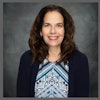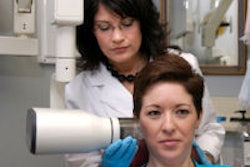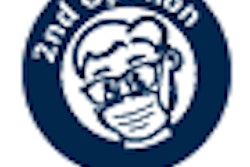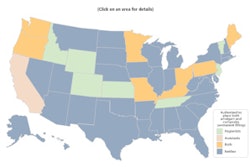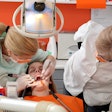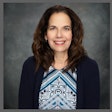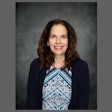
I recently asked several leading dentists to give me three qualities they consider critical to finding a superior clinical assistant. I received many typical answers and a couple of intriguing ones. As an assistant myself, I was curious to know what these dentists think it takes to be considered a "top gun" assistant.
The first replied, "I would like an assistant with a sense of loyalty and talent."
The second said he was looking for "an assistant with leadership and customer service skills."
The third wanted "an assistant who owns the philosophy of the practice and engages in 'mastermind' thinking."
In reviewing all of these answers, I realized that when you mix all these ingredients together, you have a great recipe for making a dental assistant for the new millennium.
Recipe in the making
Mark E. Hyman, D.D.S., M.A.G.D., of Greensboro, NC, began teaching me to think like a mastermind assistant the moment I began working for him. Early in my assisting career, I worked for another dentist who was not as forward-thinking in his career or practice. Not only did he not engage his dental team in the practice's philosophy, he wasn't aware that one existed.
In a recent interview with Dr. Hyman, I asked, "What do you remember most of my first interview with you 10 years ago?"
Dr. Hyman: You were 10 minutes late!
Tina: Besides that? (I got lost on the way to the office.)
Dr. Hyman: I remember meeting a young and enthusiastic dental assistant with enormous potential.
Tina: How did you recognize that I had potential?
Dr. Hyman: I asked, "If there was a way that you could have helped your previous dentist with the success of his practice, would you have done so?" You replied, "Yes, but I didn't know how." Which brought me to my next question, "If there was a way I could show you how to reinvent yourself for the success of the practice, the team, and your personal growth, would you be committed to this journey?"
Tina: My answer was "Yes!" I was intrigued because no one had ever taken a moment to ask me if I was committed to personal reinvention for success.
Removing the elephant
From my first day in Dr. Hyman's office, I got to experience what it was like to be a part of a top gun dental team. I have to admit I was overwhelmed by the new technology, high levels of customer service, and excellent communication skills used by all the team members as they engaged their patients. The sense of care and loyalty this group had toward their patients, dentist, and each other was evident.
At the end of the day, each team member received a thank you for a job well done and a hug goodbye from the dentist. This was something I had never experienced or heard about from fellow assisting colleagues before. Dr. Hyman asked me, "Tina, what did you think of your first day?" I admitted that I was overwhelmed and pleased with what I experienced, but was wondering if this were the right place for me as everyone seemed so advanced in their careers.
In my interview with Dr. Hyman, I asked, "How do you counsel someone who is overwhelmed?"
Dr. Hyman: I found that when I was overwhelmed, my dad used to say, "Mark, how do you move an elephant?" The answer, "You cut it up into small pieces."
And little by little we began examining the steps to reinventing a clinical assistant. "What did you notice about our patient care today?" Dr. Hyman asked me. I replied that the patients were greeted warmly and the assistant shook each patient's hand and greeted them with kind words, such as, "Mrs. Smith, good morning and thank you for being with us today."
The assistant also walked with the patient -- not in front of or behind -- and took the patient's belongings and hung them up for her. She then offered the patient a seat, gently gesturing toward the operatory chair. The assistant also asked if she would like a warm blanket to keep her comfortable or headphones for music to drown out the sound of the handpiece.
"Customer service is hard to come by," Dr. Hyman said. "When was the last time you remember someone serving you with excellence?" Honestly, I had to really think. Nothing came to mind.
Tina: Why do you think people are not used to receiving excellent customer service?
Dr. Hyman: It is not expected any more. It has become a lost art; however, when found, you notice it and want more of it. You keep coming back for more. I read a book titled Raving Fans. It was an easy read and emphasized the importance of customer service -- no matter the business. This was a book I bought for all of my employees and asked that everyone read it as homework so we could discuss it at our next staff meeting. I planted the seed for my teammates and did my best to lead by example. I soon noticed one of our teammates showing a patient to the restroom rather than telling them where it was. It made me proud to know that we care enough, even about the little things. If my team is taking care of their patients, they are taking care of me. In turn, I take care of them out of appreciation of their striving for excellence.
Shortly after our conversation, Dr. Hyman recommended that I also read the book Raving Fans. Soon I noticed providing excellent customer service wasn't a chore, but fun. I enjoyed seeing the smiles on patients' faces, and my patients would tell me how well they were being taken care of by the staff. Before I knew it, excellence in customer care became part of my personality. It wasn't something I had to think about anymore. It was a natural characteristic of my career as a dental assistant.
Engaging team members
How do team members know where to go if they have no destination in mind? I have met many great clinicians who were unaware of the mission of their practice, simply because it was not shared by their CEO. Thus, without a destination in mind, a "this is just a job" mentality became the dental team's mantra.
Tina: How do you help your team buy into the practice's philosophy?
Dr. Hyman: It is important to know where the practice came from and how it has come to exist. I bought a floundering practice in the early 1980s. At first, we experienced growing pains. So, I sought guidance from my professional colleagues on how they became successful. I worked with dental industry leaders like Linda Miles and Cathy Jameson, and applied every nugget of professional management advice they generously shared.
Most people do not like to share their failures, but it is important for our team members to see us as human and realize that we need their help in making the practice a success. I could not do it alone. In sharing this story, I also share the practice's mission. This is a mission we developed together as a team. It is important that the mission not just represent the dreams of the doctor, but those of the team members as well. How would we all like the practice to be regarded?
Our mission statement became: We are a team of compassionate, dedicated professionals who provide optimal dental care using state-of-the-art technology. We are enthusiastic in our commitment to you, to excellence, and to building better relationships within our community.
Engaging your employees isn't so difficult when you invite them to help make this dental home a great place to be.
Once bitten, twice shy
With trust comes loyalty, and when trust is broken, loyalties are in question. In my previous experience with a practice that was in need of help, trust was broken more than once. No one likes to talk about money. It is difficult, especially if the practice collections are not enough to provide for overhead and team salaries.
More than once, my teammates and I had waited on a Thursday evening for paychecks to be passed out only to learn the doctor had already left for the weekend. A negative mix of emotions was definitely felt among team members when this would happen. The question of trust and loyalty from both parties became a concern. The doctor felt he was barely holding his head above water financially. When asked about continuing education and outside help, he answered simply, "I just don't think that we need it." If our dentist was not willing to seek help or grow, then how could the rest of the team?
Tina: How do you develop and maintain loyalty?
Dr. Hyman: Like any relationship, trust is earned from both sides and loyalties are cultivated. I let each member know that I genuinely trust them in taking care of me and the practice. They should expect the same from me, from themselves, and from their families. If there is ever a question, don't be afraid to ask. To quote Dale Carnegie, "Don't criticize, condemn, or complain." No one likes to be called out publicly. If there is a concern, I make myself available to my team to speak privately. My sincere regard for the well-being and growth of each person on my team has been integral to earning trust and loyalty. Mean what you say, and say what you mean with sincerity.
Who should set the bar?
It is a shame that many dental auxiliaries are not given permission to apply their leadership skills. Some don't even recognize that they have leadership skills. Many years ago, I would have fallen into the category of not understanding or knowing the full potential of my leadership as a clinical assistant.
Tina: How do you help someone grow leadership skills?
Dr. Hyman: You set the example and act from abundance instead of scarcity. In other words, you realize the cost of each teammate not working to their full potential. Recognizing that if you, the dentist, cannot bring it out, then consider that perhaps someone or something else might be able to, be it a book, audiotape, continuing education course, or professional consultant. One of the great joys for me is discovering the potential for leadership in teammates in areas that I may not personally have leadership strength. Thus, the teammate complements me. I feel it is unfair to expect the doctor to have the expertise in every facet of the practice or the time to lead in every aspect.
Mastermind thinking
One of the most valuable lessons I have learned is how important it is to be open to suggestions. An "I am always right" mentality is not empowering. Mastermind thinking requires expanded thought. My favorite is when my teammates provoke thought-leading questions. I like people who make me think.
Tina: How do you engage your team members in mastermind thinking?
Dr. Hyman: I recognize the importance of thought sharing and that each perspective could lead us to something new and innovative. I empower my team to share suggestions. Sometimes in the dental world, we are so busy being busy. With the urgency of the everyday practice, we do not take the time for long-term planning because we are solving short-term urgent problems. Why should a doctor give the practice a half-day off for a team meeting for long-term planning and brainstorming? What is the benefit? This is the time when we gather our rubies and pearls, then apply them the next business day for the success of each individual, team, and practice as a whole.
Tina: What is the most valuable mastermind lesson you have learned this year that other practices would benefit from?
Dr. Hyman: It would be to improve the new patient experience to further discover why your patient may say yes. Other lessons include understanding the importance of extending financing during turbulent economic times and adding services that add value to the patients' experience.
Becoming an MVP
We will always have a time in our careers when we must reinvent ourselves or reinvent a new way of doing our jobs. At our last top gun team meeting, we decided to adopt the Dale Carnegie motto, "Organizations with engaged employees do not engage in recessions, but simply outperform the competition."
I challenge all of you to take these lessons and apply them next Monday morning. Become your practice MVP for 2010.
Tina Calloway, C.D.A., served in the U.S. Navy in 1992 and received her dental assisting training in Marietta, GA. She has worked in dentistry for 14 years as a full-time dental assistant, is past president of the Piedmont Dental Assistant Society, and currently is a clinical assisting consultant. She is a member of the North Carolina Dental Assistant Association and the American Dental Assistants Association.
Copyright © 2010 DrBicuspid.com



